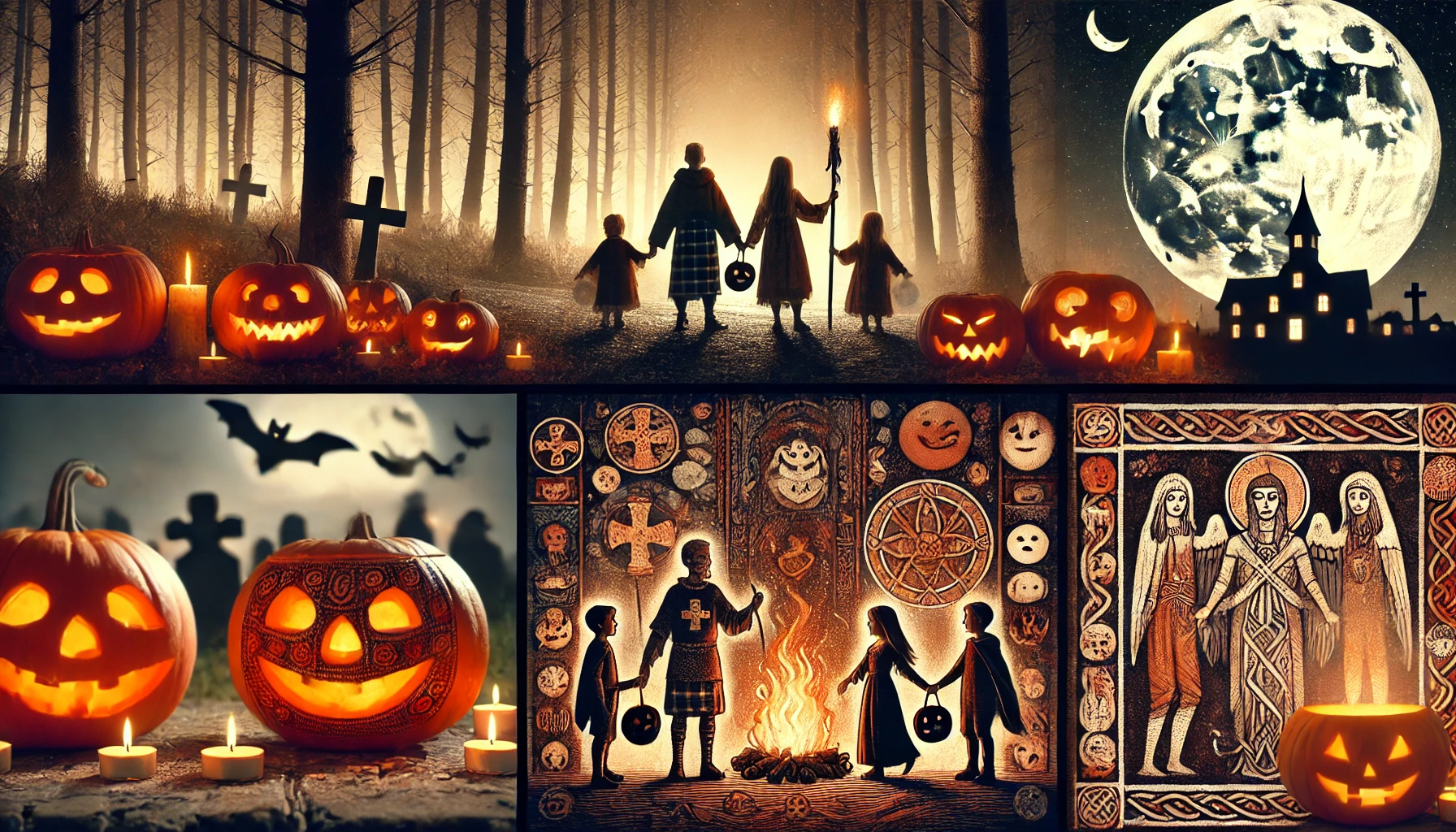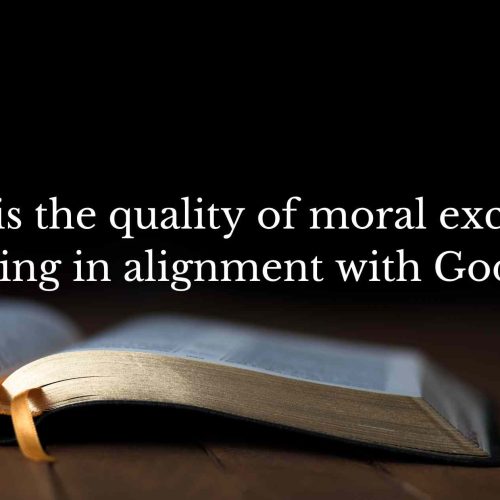A unique blend of history, cultural customs, and contemporary celebrations define Halloween, which is observed on October 31st every year. Samhain, a Celtic feast, is one of the earliest examples of ancient pagan practices. Christians can make more educated decisions regarding whether or not to celebrate Halloween if they have a thorough understanding of the holiday’s origins, historical development, and effects on Christians.
Samhain Celtic Festival
From the Old Irish, “Samhain” means “summer’s end.” Over 2,000 years ago, the Celts observed this ancient festival to commemorate the end of the harvest season and the arrival of winter. Believing that on the night of Samhain, the line that would later become modern-day Ireland, the United Kingdom, and northern France, the Celts
To honor and protect themselves from these spirits, the Celts got involved in rituals, such as lighting bonfires and wearing costumes to disguise themselves. These practices were rooted in their desire to appease or ward off wandering spirits that could bring harm or misfortune.
The Transition to Christian Practices
As Christianity spread throughout Europe, many pagan customs were assimilated into the Christian faith. In the 8th century, Pope Gregory III declared November 1st as All Saints’ Day, a time for honoring saints and martyrs. The night before this holy day became known as All Hallows’ Eve, eventually evolving into the modern term Halloween.
This integration of pagan traditions into Christian observances set the stage for the Halloween we recognize today. While the church aimed to transform pagan rituals into Christian practices, many customs persisted. The bonfires that were once lit to ward off spirits transformed into commemorative fires for saints, and the costumes that once served a protective purpose became expressions of creativity and festivity.
Modern-Day Halloween Celebrations
In contemporary society, Halloween is celebrated in various ways, especially in the United States, Canada, and parts of Europe. Key features of modern Halloween festivities include:
Trick-or-treating: Children dress in costumes and go door-to-door, asking for candy and treats. This practice has its roots in the medieval custom of “souling,” where the poor would offer prayers for the dead in exchange for food.
Costume Parties: Both adults and children enjoy dressing up as their favorite characters, ranging from superheroes to classic monsters. This tradition has evolved into a form of creative expression and social interaction.
Haunted Attractions: Many communities host haunted houses, corn mazes, and ghost tours, tapping into the spooky themes associated with the holiday.
Decorations: Homes are adorned with pumpkins, ghosts, and cobwebs, creating an atmosphere that blends festivity with eeriness.
Christian Perspectives on Halloween
Whether Christians should celebrate Halloween often sparks debate within the church. Different perspectives arise based on interpretations of scripture, tradition, and personal conviction. Ultimately, it is essential to remember that the choice to participate in Halloween celebrations is a matter of individual conscience, and God has endowed us with the ability to evaluate our choices.
Arguments Against Celebrating Halloween
Pagan Roots: Many Christians oppose Halloween due to its origins in paganism. They argue that participating in Halloween traditions can dilute Christian values and promote fear and darkness rather than light. Scripture, particularly Ephesians 5:11, reminds believers, “Have nothing to do with the fruitless deeds of darkness, but rather expose them.”
Occult Associations: Halloween is often associated with witchcraft, the occult, and horror themes. Verses such as Deuteronomy 18:10–12 caution against engaging in practices like witchcraft, divination, and necromancy, leading some Christians to view Halloween as spiritually dangerous.
Focus on Fear: The themes of death and fear prevalent during Halloween can be unsettling for many. 2 Timothy 1:7 states, “For God has not given us a spirit of fear, but of power and love and a sound mind,” emphasizing the importance of cultivating a spirit that reflects God’s love rather than fear.
Arguments for Celebrating Halloween
Cultural Engagement: Some Christians argue that Halloween presents an opportunity for cultural engagement and community connection. Instead of isolating themselves from the festivities, they participate in ways that reflect their faith. Many churches hold alternative events, such as harvest festivals or trunk-or-treat activities, which allow families to enjoy Halloween in a safe and positive environment.
Focus on Light and Love: Many Christians emphasize that Halloween can be an opportunity to share the love of Christ with neighbors. This perspective encourages believers to engage with their communities positively, counteracting any negative associations with the holiday.
Family Traditions: For numerous families, Halloween has advanced into a cherished tradition. By engaging in activities like costume-making, pumpkin carving, and trick-or-treating, they create lasting memories and foster family bonds. Colossians 3:23-24 encourages believers to do everything with heart and purpose, reminding them that even everyday activities can become acts of worship.
Navigating Halloween as a Christian
For Christians who choose to celebrate Halloween, it is vital to approach the holiday thoughtfully and intentionally. Here are some practical ways to engage with Halloween meaningfully:
Focus on Community: Use Halloween as a chance to connect with neighbors and share the love of Christ. Hosting a block party or inviting friends for a Halloween-themed gathering that emphasizes fun and fellowship can create lasting relationships.
Create family-friendly traditions: Encourage your family to establish traditions centered around positive experiences. This could include pumpkin carving, baking Halloween-themed treats, or participating in community service projects, allowing the celebration to align with Christian values.
Promote Alternatives: Churches and community groups can host alternative events such as “harvest festivals” or “light parties,” where families can enjoy games, food, and fellowship without the darker themes typically associated with Halloween.
Educate Children on Discernment: This is an opportune time to teach children about discernment and the importance of making choices that reflect their faith. Discuss the differences between engaging in fun activities and participating in practices that conflict with Christian values.
Pray and Reflect: Spend time in prayer and reflection regarding Halloween. Consider asking God for wisdom and guidance on how to approach the holiday in a manner that honors Him.
Biblical Guidance for Celebration
As Christians contemplate the decision to celebrate Halloween, several biblical principles can guide their choices:
Avoiding Darkness: As emphasized in Ephesians 5:11, believers are encouraged to distance themselves from the “fruitless deeds of darkness.” Christians can focus on celebrating the light and love of Christ instead.
Cultural Relevance: The Bible teaches believers to be “in the world, but not of it” (John 17:14-16). This principle encourages active engagement with culture while maintaining a firm foundation in faith.
Emphasizing Goodness: Philippians 4:8 calls believers to dwell on whatever is true, noble, right, pure, lovely, and admirable. This can guide Christians to find joy in positive aspects of Halloween, such as community and family.
Halloween is a holiday rich in history and tradition, with roots that stretch back over the centuries. While its origins may raise questions about compatibility with Christian beliefs, the choice to celebrate ultimately lies in individual conviction. God has given each person the power to choose, evaluate, and discern whether participating in Halloween aligns with their faith.
By approaching the holiday with knowledge and intentionality, Christians can engage in Halloween in ways that reflect their beliefs and values, foster community, and emphasize the light of Christ. In doing so, they can navigate the complexities of Halloween with confidence, knowing that God’s love transcends all traditions and offers guidance on how to honor Him in every aspect of life, even amid the festivities of October 31st.
For further exploration of this topic, consider visiting resources like Got Questions for a biblical perspective on Halloween and Crosswalk for tips on navigating Halloween as a Christian.




